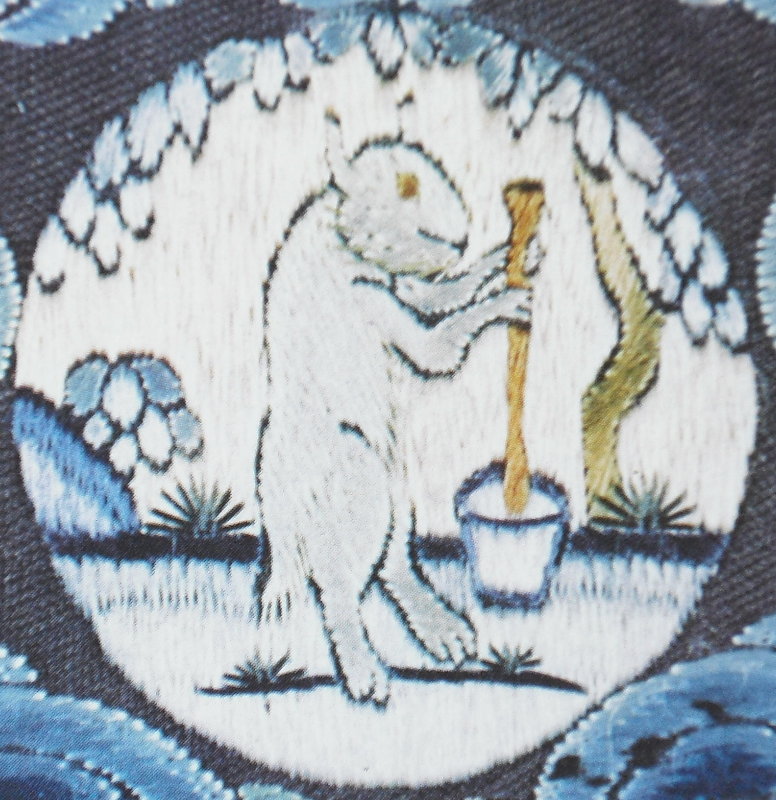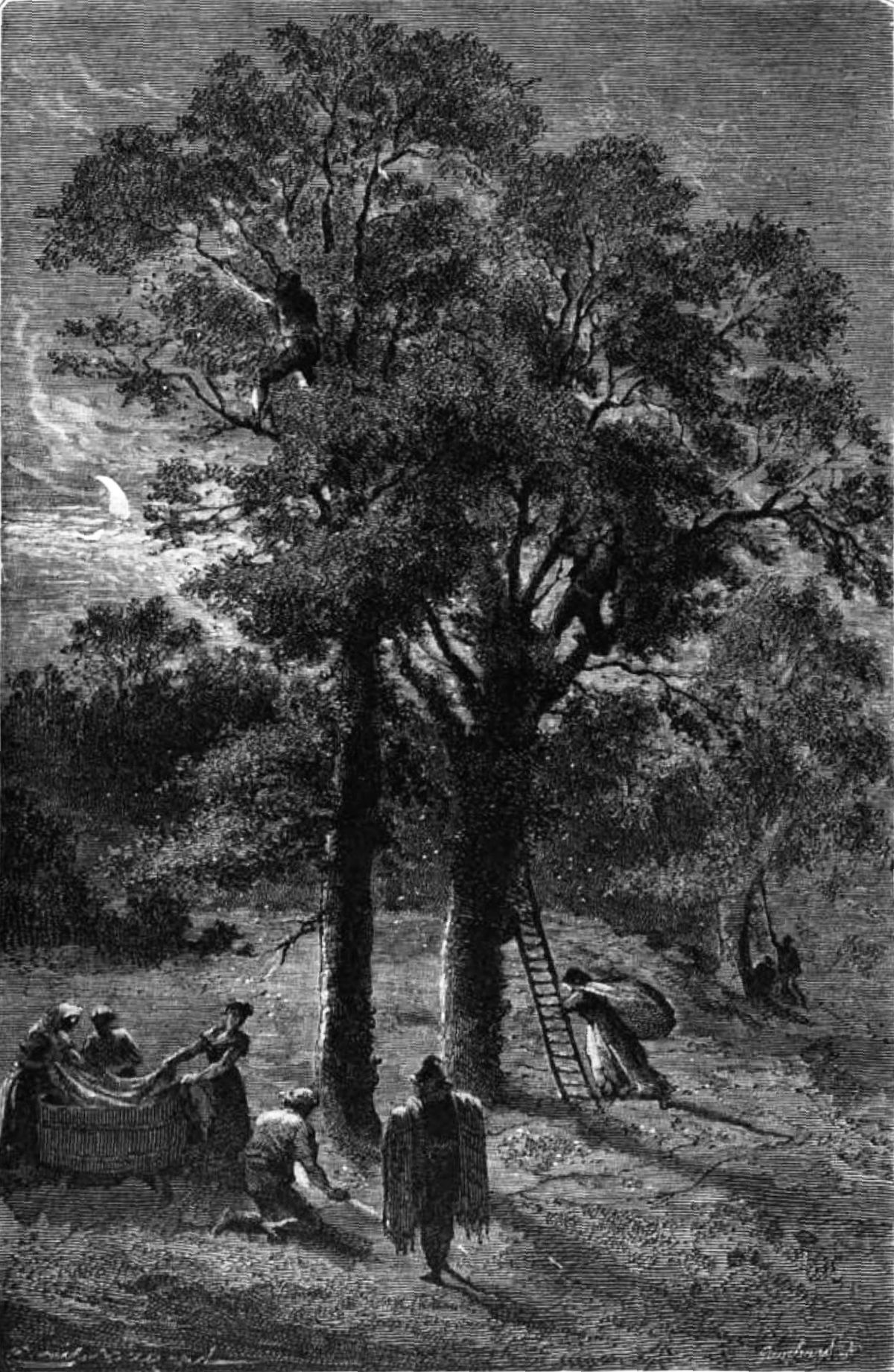|
Potion
A potion is a liquid "that contains medicine, poison, or something that is supposed to have magic powers." It derives from the Latin word ''potio'' which refers to a drink or the act of drinking. The term philtre is also used, often specifically to describe a love potion, a potion that is believed to induce feelings of love or attraction in the one who drinks it. Throughout history, there have been several types of potions for a range of purposes. Reasons for taking potions have included curing an illness, Elixir of life, securing immortality, and trying to inspire love. These potions, while often ineffective or poisonous, occasionally had some degree of medicinal benefits depending on what they sought to fix and the type and amount of ingredients used. Common ingredients in historical potions included Lytta vesicatoria, Spanish fly, Solanaceae, nightshade plants, cannabis, and opium. During the 17th to 19th century, it was common in Europe to see peddlers offering potions fo ... [...More Info...] [...Related Items...] OR: [Wikipedia] [Google] [Baidu] |
Love Potion
A love potion (''poculum amatorium'') is a magical liquid which supposedly causes the drinker to develop feelings of love towards the person who served it. Another common term to describe the potion, ''philtre'', is thought to have originated from the ancient Greek term ''philtron (love charm'), via the French word '' philtre''. The love potion motif occurs in literature, mainly in fairy tales, and in paintings, drama, music and mythology. In the Middle Ages, extracts from nightshades were used as hallucinogens, and to make supposed love potions and flying ointments. Such plants may have included belladonna, angel's trumpets, jimsonweed, black henbane, European scopolia or autumn mandrake, which contain alkaloids (atropine and scopolamine, which are hallucinogenic in higher doses) characterized by a narrow therapeutic index. Some attempts to create love potions have led to overdose or death where the preparations were not standardized for the content of potent c ... [...More Info...] [...Related Items...] OR: [Wikipedia] [Google] [Baidu] |
Witchcraft
Witchcraft is the use of Magic (supernatural), magic by a person called a witch. Traditionally, "witchcraft" means the use of magic to inflict supernatural harm or misfortune on others, and this remains the most common and widespread meaning. According to ''Encyclopedia Britannica'', "Witchcraft thus defined exists more in the imagination", but it "has constituted for many cultures a viable explanation of evil in the world". The belief in witches has been found throughout history in a great number of societies worldwide. Most of these societies have used Apotropaic magic, protective magic or counter-magic against witchcraft, and have shunned, banished, imprisoned, physically punished or killed alleged witches. Anthropologists use the term "witchcraft" for similar beliefs about harmful occult practices in different cultures, and these societies often use the term when speaking in English. Belief in witchcraft as malevolent magic is attested from #Ancient Mesopotamian religion ... [...More Info...] [...Related Items...] OR: [Wikipedia] [Google] [Baidu] |
Poison
A poison is any chemical substance that is harmful or lethal to living organisms. The term is used in a wide range of scientific fields and industries, where it is often specifically defined. It may also be applied colloquially or figuratively, with a broad sense. Whether something is considered a poison or not may depend on the amount, the circumstances, and what living things are present. Poisoning could be accidental or deliberate, and if the cause can be identified there may be ways to neutralise the effects or minimise the symptoms. In biology, a poison is a chemical substance causing death, injury or harm to organisms or their parts. In medicine, poisons are a kind of toxin that are delivered passively, not actively. In industry the term may be negative, something to be removed to make a thing safe, or positive, an agent to limit unwanted pests. In ecological terms, poisons introduced into the environment can later cause unwanted effects elsewhere, or in other pa ... [...More Info...] [...Related Items...] OR: [Wikipedia] [Google] [Baidu] |
Magic (supernatural)
Magic, sometimes spelled magick, is the application of beliefs, rituals or actions employed in the belief that they can manipulate natural or supernatural beings and forces. It is a category into which have been placed various beliefs and practices sometimes considered separate from both religion and science. Connotations have varied from positive to negative at times throughout history. Within Western culture, magic has been linked to ideas of the Other (philosophy), Other, foreignness, and primitivism; indicating that it is "a powerful marker of cultural difference" and likewise, a non-modern phenomenon. During the late nineteenth and early twentieth centuries, Western intellectuals perceived the practice of magic to be a sign of a primitive mentality and also commonly attributed it to marginalised groups of people. Aleister Crowley (1875–1947), a British occultist, defined "magick" as "the Science and Art of causing Change to occur in conformity with Will", adding a 'k' ... [...More Info...] [...Related Items...] OR: [Wikipedia] [Google] [Baidu] |
Elixir Of Life
The elixir of life (Medieval Latin: ' ), also known as elixir of immortality, is a potion that supposedly grants the drinker Immortality, eternal life and/or eternal youth. This elixir was also said to Panacea (medicine), cure all diseases. Alchemy, Alchemists in various ages and cultures sought the means of formulating the elixir. History Ancient Mesopotamia An early mention of an elixir of life is found in the Epic of Gilgamesh (from the 2nd millennium BC) in which Gilgamesh comes to fear his own declining years following the death of his beloved companion Enkidu. He seeks out Utnapishtim, a figure in Mesopotamian mythology known for surviving a great flood sent by the gods and being granted immortality. Gilgamesh is directed by Utnapishtim to find a plant at the bottom of the sea, but he loses it to a serpent before he can use it himself. This legend is an archaic explanation for snakes shedding their skin, seen as mystical rejuvenation. China Many rulers of ancient C ... [...More Info...] [...Related Items...] OR: [Wikipedia] [Google] [Baidu] |
Peddler
A peddler (American English) or pedlar (British English) is a door-to-door and/or travelling vendor of good (economics), goods. In 19th-century United States the word "drummer" was often used to refer to a peddler or traveling salesman; as exemplified in the popular play ''Sam'l of Posen; or, The Commercial Drummer'' by George H. Jessop. In England, the term was mostly used for travellers hawker (trade), hawking goods in the countryside to small towns and villages. In London, more specific terms were used, such as costermonger. From antiquity, peddlers filled the gaps in the formal market economy by providing consumers with the convenience of door-to-door service. They operated alongside town markets and fairs where they often purchased surplus stocks which were subsequently resold to consumers. Peddlers were able to distribute goods to the more geographically-isolated communities such as those who lived in mountainous regions of Europe. They also called on consumers who, for w ... [...More Info...] [...Related Items...] OR: [Wikipedia] [Google] [Baidu] |
Lytta Vesicatoria
''Lytta vesicatoria'', also known as the Spanish fly, is an aposematic emerald-green beetle in the blister beetle family (Meloidae). It is distributed across Eurasia. The species and others in its family were used in traditional apothecary preparations as "Cantharides". The insect is the source of the terpenoid cantharidin, a toxic blistering agent once used as an exfoliating agent, anti-rheumatic drug and an aphrodisiac. The substance has also found culinary use in some blends of the North African spice mix '' ras el hanout''. Its various supposed benefits have been responsible for accidental poisonings. Etymology and taxonomy The generic name is from the Greek λύττα (''lytta''), meaning martial rage, raging madness, Bacchic frenzy, or rabies. The specific name is derived from Latin ''vesica'', blister. ''Lytta vesicatoria'' was formerly named ''Cantharis vesicatoria'', although the genus '' Cantharis'' is in an unrelated family, Cantharidae, the soldier beetles. ... [...More Info...] [...Related Items...] OR: [Wikipedia] [Google] [Baidu] |
Quackery
Quackery, often synonymous with health fraud, is the promotion of fraudulent or Ignorance, ignorant medicine, medical practices. A quack is a "fraudulent or ignorant pretender to medical skill" or "a person who pretends, professionally or publicly, to have skill, knowledge, qualification or credentials they do not possess; a charlatan or snake oil salesman". The term ''quack'' is a Clipping (morphology), clipped form of the archaic term ', derived from a "hawker of salve" or rather somebody who boasted about their salves, more commonly known as ointments. In the Middle Ages the term ''quack'' meant "shouting". The quacksalvers sold their wares at markets by shouting to gain attention. Common elements of general quackery include List of diagnoses characterized as pseudoscience, questionable diagnoses using List of questionable diagnostic tests, questionable diagnostic tests, as well as untested or refuted treatments, especially for serious diseases such as alternative cancer trea ... [...More Info...] [...Related Items...] OR: [Wikipedia] [Google] [Baidu] |
Caesar's Civil War
Caesar's civil war (49–45 BC) was a civil war during the late Roman Republic between two factions led by Julius Caesar and Pompey. The main cause of the war was political tensions relating to Caesar's place in the Republic on his expected return to Rome on the expiration of his Lex Vatinia, governorship in Roman Gaul, Gaul. Before the war, Caesar had led an Gallic Wars, invasion of Gaul for almost ten years. A build-up of tensions starting in late 50 BC, with both Caesar and Pompey refusing to back down, led to the outbreak of civil war. Pompey and his allies induced the Roman Senate, Senate to demand Caesar give up his provinces and armies in the opening days of 49 BC. Caesar refused and instead Crossing the Rubicon, marched on Rome. The war was fought in Italy, Illyria, Greece in the Roman era, Greece, Ptolemaic Egypt, Egypt, Africa (Roman province), Africa, and Hispania. The decisive events occurred in Greece in 48 BC: Pompey defeated Caesar at the Battle of ... [...More Info...] [...Related Items...] OR: [Wikipedia] [Google] [Baidu] |
Midwife
A midwife (: midwives) is a health professional who cares for mothers and Infant, newborns around childbirth, a specialisation known as midwifery. The education and training for a midwife concentrates extensively on the care of women throughout their lifespan; concentrating on being experts in what is normal and identifying conditions that need further evaluation. In most countries, midwives are recognised as skilled healthcare providers. Midwives are trained to recognise variations from the normal progress of Childbirth, labour and understand how to deal with deviations from normal. They may intervene in high risk situations such as breech births, twin births, using non-invasive techniques. For complications related to pregnancy and birth that are beyond the midwife's scope of practice, including surgical and instrumental deliveries, they refer their patients to physicians or surgeons. In many parts of the world, these professions work in tandem to provide care to childbearing ... [...More Info...] [...Related Items...] OR: [Wikipedia] [Google] [Baidu] |







